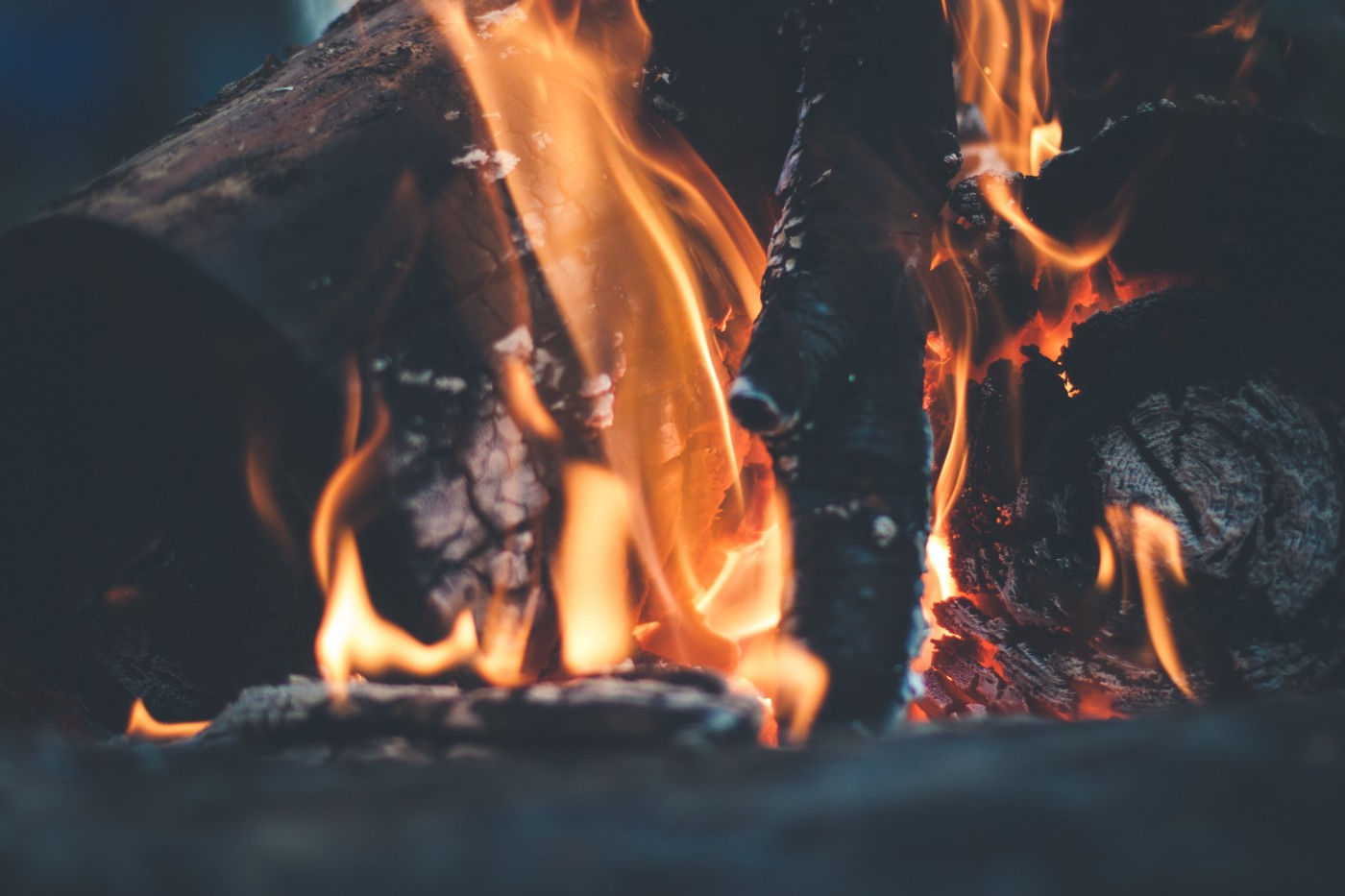3 Actions to Take to Begin Controlling Your Rage | Before, During & After an Outburst
- Jon Parker

- Jan 19, 2018
- 7 min read

One of the things that stands out the strongest when I look back on my life is my anger. I think I have some grasp on why my anger grew to the point that it did. It wasn't always a problem for me, or at least I didn't consider it to be one. Growing up, it was my defense.
Like many, my young life was marked by change. If we weren't living in a trailer with no heating or water in the middle of a Mid-West winter, then we were spending weeks on end living out of an Eddie Bauer Edition step-side Ford F-150. If there weren't drugs to be had then there was always plenty of Whiskey. And as many of you probably know, too much whiskey can rapidly cause a pleasant evening to degenerate into one full of literal violence.
So, I grew up in a house (or a hundred) where violence was nearly ever present. I don't want you to think that I was physically abused, because aside from a punch in the mouth or a wooden back scratcher to the chins or knuckles, I wasn't. My step-dad hit like a weak woman (because he's a pussy) and I'm sure my mother meant well with the back scratcher.
No, most of the violence was between my mother and her husband, with my mother almost always being the aggressor (She almost completely bit off his nipple once when she thought he was being unfaithful. I'm not kidding.). I understand that many people who had alcoholics for parents turn into alcoholics themselves, but I had all the motivation in the world to never let that substance have control over me.
I wasn't so motivated, however, to even attempt to keep a hold on my anger. When I felt like the world was against me, I had anger. When someone mouthed off, I had rage. When I had no one to turn to, and no one in the world that was unselfish enough to give me a even the tiniest bit of encouragement, I had unbridled fury.

I didn't need a security blanket because I was warmed by my rage, and it seemed that there was barely a chance for that fire to go out. Of course I see things differently now, through the eyes of a man, and not a boy; through the eyes of a husband and a father.
I do see things differently now, but then I couldn't imagine a life without that furious light within me. Don't get me wrong, it's still there, but it is no longer my defense. It has proven to be a guardian, but also at times an enemy. It has been the cause of a lot of pain and heartache in my life and in the lives of those closest to me. I have yet to face an enemy as dangerous as this one.
While some enemies can be defeated, others must be controlled. I have learned that there are ways to control anger and rage, and to use them constructively.
Below are three actions that you can take that have helped me tremendously when dealing with anger.
1. Recognize Triggers (Before)
The most effective thing that I've been able to do in pursuit of the goal of controlling my anger, has been to cultivate in within myself the ability to think before acting. That may sound over simplified, but it is very effective. Once upon a time I didn't think I'd ever be able to stop myself from acting in the midst of a storm of fury. It took years to get to where I am at, but I wouldn't be here if I had never began cultivating this ability.
It isn't some grand or complicated thing. You grow this ability by learning to recognize your triggers. I hate the term "trigger" because it has been commandeered by the unruly and overly sensitive political left in the West, but even so, everyone who struggles with their anger has triggers, and if you're one of us, then you know it to be true. Whatever your triggers may be, learn to recognize them. Just as the alcoholic must learn to notice when he or she is slipping into a mindset of consumption, so too must you learn to recognize when you are beginning to slip.
Try to remember which things occurred, what the people around you said, and what actions you took just prior to an outburst. Learn to read yourself and those around you. It isn't the responsibility of others to walk on eggshells around you, and if you expect them to then you're going to be perpetually angry, which is a massive issue in and of itself outside of problems controlling outbursts of rage.
The point is that you must take the time to become observant and learn and remember which actions or words piss you off. As you're learning these things you can begin to exert greater control over yourself by seeing a trigger and stopping yourself from acting before you do something stupid that you'll regret.
2. Breathe (During)
I can say with some amount of confidence that if you struggle with anger, you've heard the advice of "just breathe," especially if you've been to anger management classes. The commonality of the advice, however, does not reduce its efficacy. I can remember more than one occasion in which intentionally focusing on my breathing made all the difference.
From the things I wrote about at the beginning of this post, you may have a certain image of my parents in your head, and it is undoubtedly a negative one. However, one thing that I think has saved me a lot of bullshit in my life, is learning to see both the good and bad in everything, and taking the good regardless of the pain. My mother is a sweet heart, and I have forgiven her for any perceived wrongdoings against me.
I learned a lot from my experiences growing up, not the least of which is my mother's often repeated advice to "breathe in through the nose, out through the mouth." I would usually get this advice during an anxiety attack, which were quite common back then, and I'm sure you can imagine why.
That bit of advice has proved to be instrumental in journey.
Breathe. In through the nose, out through the mouth.
It wasn't necessarily the act of breathing in through my nose and out through my mouth that made the difference, it was the shift in focus. Breathing like that would move my focus from my emotional distress to my breathing. That may sound like it wouldn't make a big difference, but it did for me.
In a recent video from Paul Waggener, Paul discusses practicing breathing from the diaphragm. Watch the video for more, but basically breathing from deeply like that, instead of breathing shallowly into the chest, affects the physiology in ways that can have a tremendous effect on anger. Paul goes over how to do that, and there are also several other tips in the video that go over rage control.
This has proven to be the most effective in my experience in the midst of an outburst. You will probably have to train yourself to remember to shift your focus, because when we're enraged we easily become hyper focused on a single target. But, if you can train yourself over time to simply remember your breathing, you will find it much easier to drop out of that intense storm.
3. Get Some Space and Speak Truth (After)
One of the other things that Paul talks about in his video is "speaking our reality into existence." That could be taken a number of different ways, but to some extent, we have the ability to effect ourselves and our surroundings with our speech. I'm not saying that you can tell a wall to become a window, but you can make some pretty strong shifts with speech.
First, though, you need to get space. Get away from the location of the incident. I'd recommend going outside, at least. Often going to another room isn't good enough. Get into a different environment, one that isn't permeated with raw emotion.
Once you leave, speak. Be brutally honest with yourself. I often find myself saying things like, "Wow, I'm a fucking asshole," or, "Great job, dip shit, you fucked up again." That kind of talk may not work for everyone, but it works for me. You should speak in the most natural way possible; in the way to which you know you will respond.
Beyond that, instead of making sweeping generalizations like, "She's always such a bitch!" or, "He's always such an asshole to me!" be honest. You know she's not always a bitch and he's not always an asshole (whoever they are). When that voice inside says something like the above, say, out loud, "No, she isn't always like that. She is being like that right now because of 'x reason.'"
The reason I put this in the after category is because that is where this kind of reflection often occurs. However, I have found myself on several occasions actively controlling my anger by consistently countering the negative voice inside with true statements, even in the midst of an argument.
Bonus (After):
Ask for forgiveness. Not much needs to be said about this one. It may seem simple and it probably sounds like the last thing you want to do after blowing up, but I can say from experience that humbling yourself in this way can be a very effective deterrent.
Conclusion
Anger, rage, can be thought of as a wild animal. I structured these tips in such a way as to hopefully provide you with an enclosure with which to capture that wild animal. Try to train yourself and to remember that you now have something solid you can do before, during and after an outburst of anger.
I use these tools like a cage to enclose my anger, and it has proven extremely helpful. I'm not perfect, obviously, and I still have a long way to go, but I have made tremendous progress by employing these tactics in recent years.
I truly hope that this helps.
I understand how hard it can be to admit that you are struggling with anger. We like to think that we have control over our impulses, but often that just isn't true. If you need help, advice or just someone to talk to, don't hesitate to comment here or email me!
Until next time,
Jon
























Comments